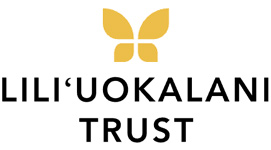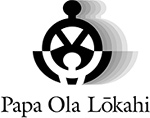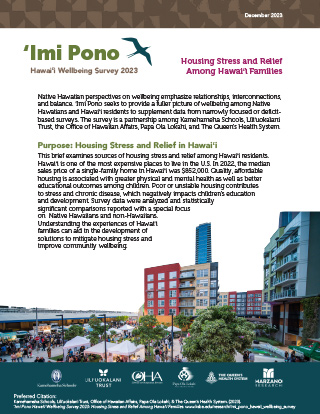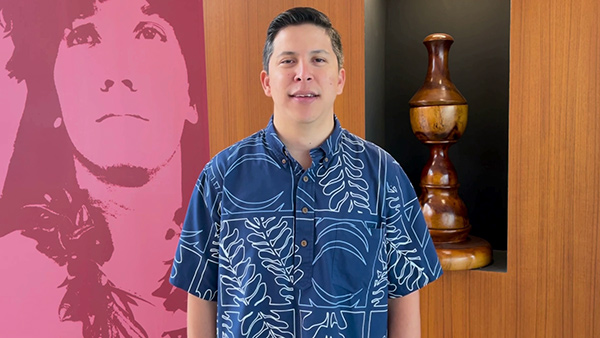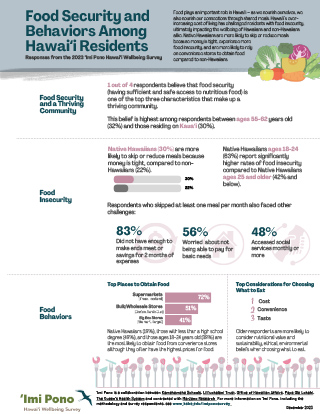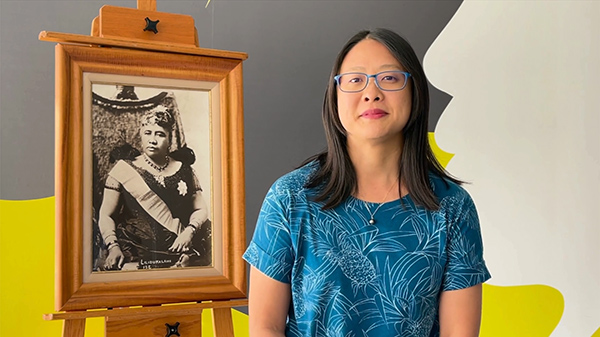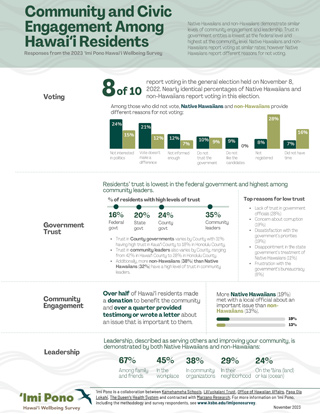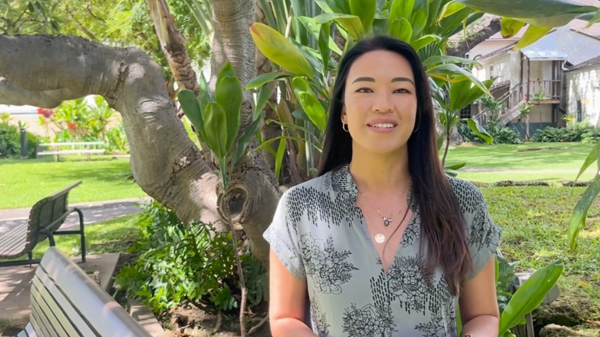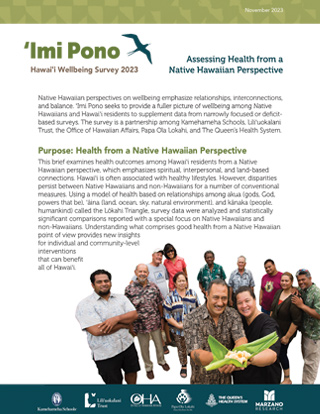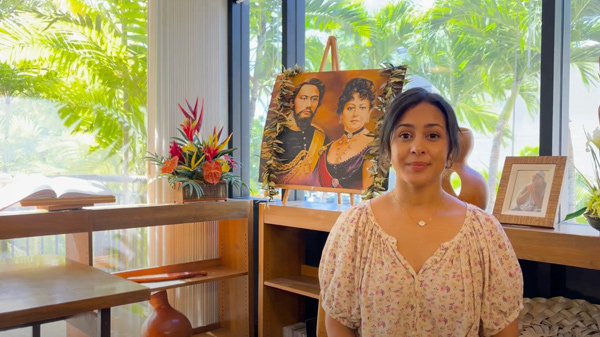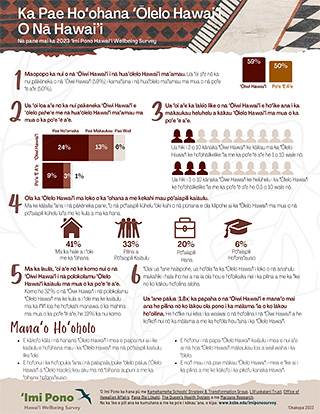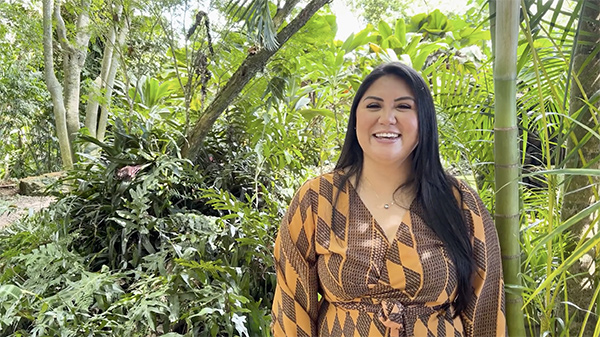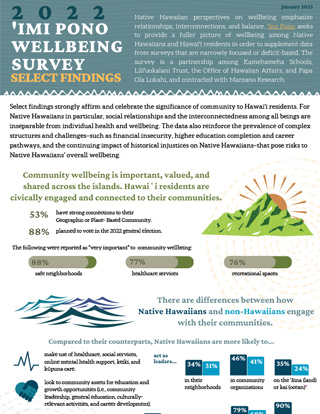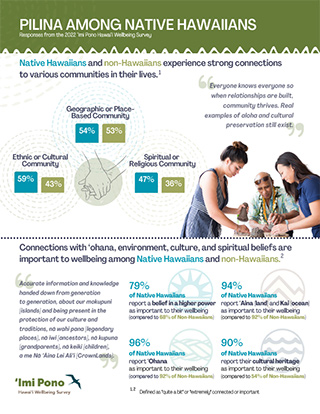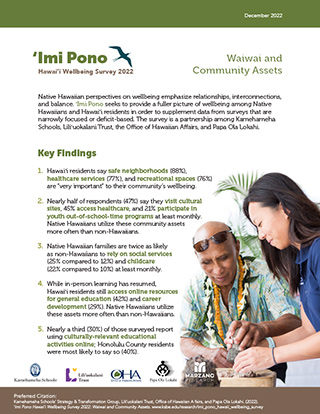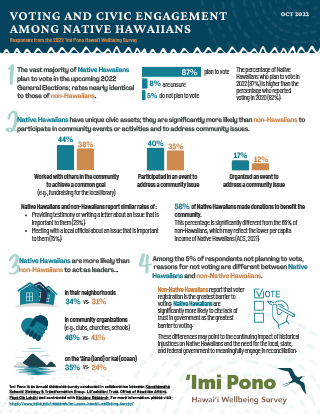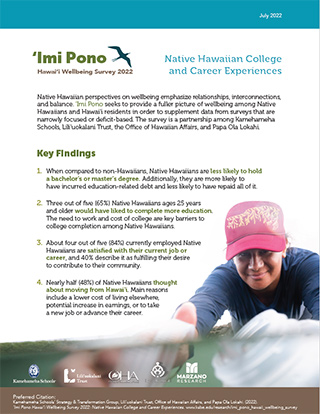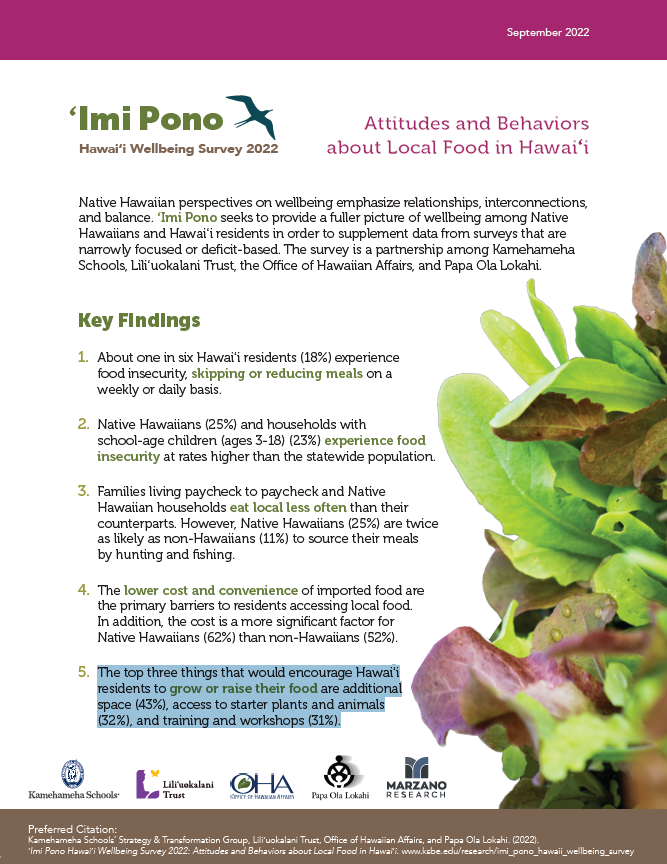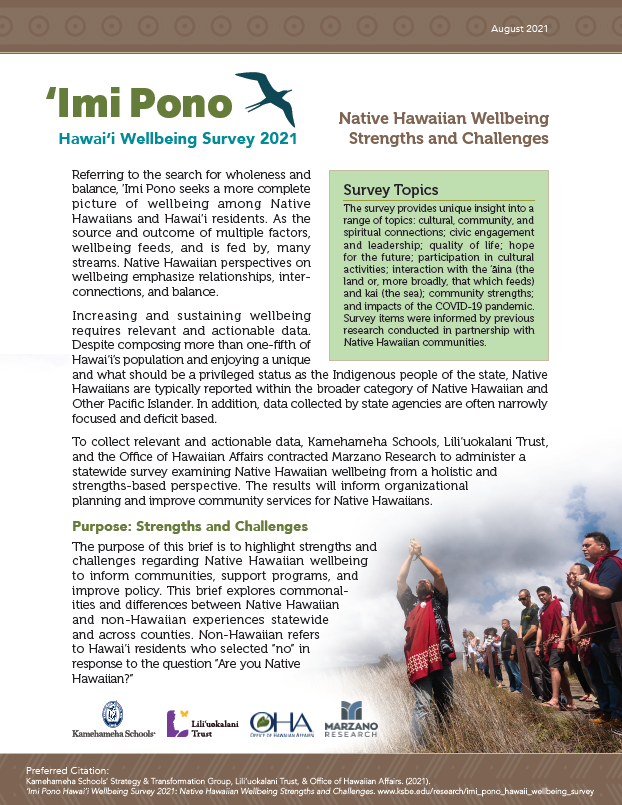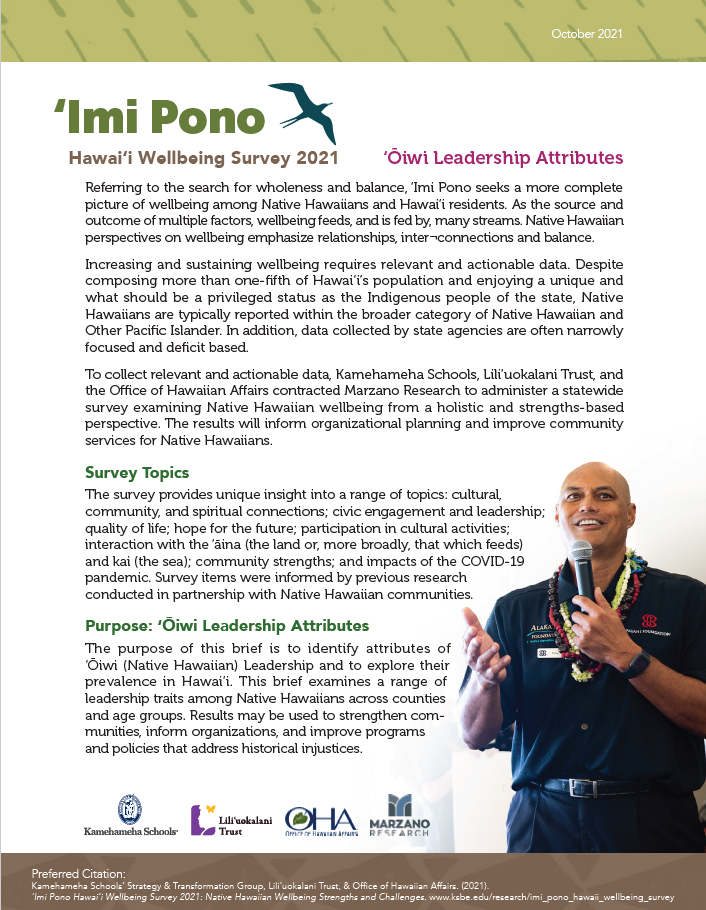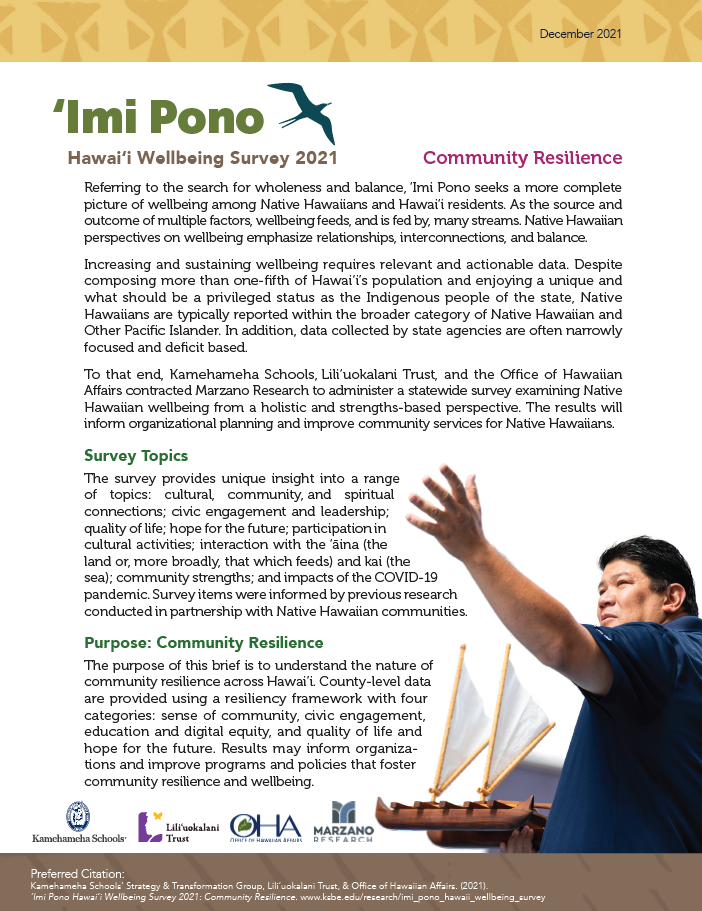
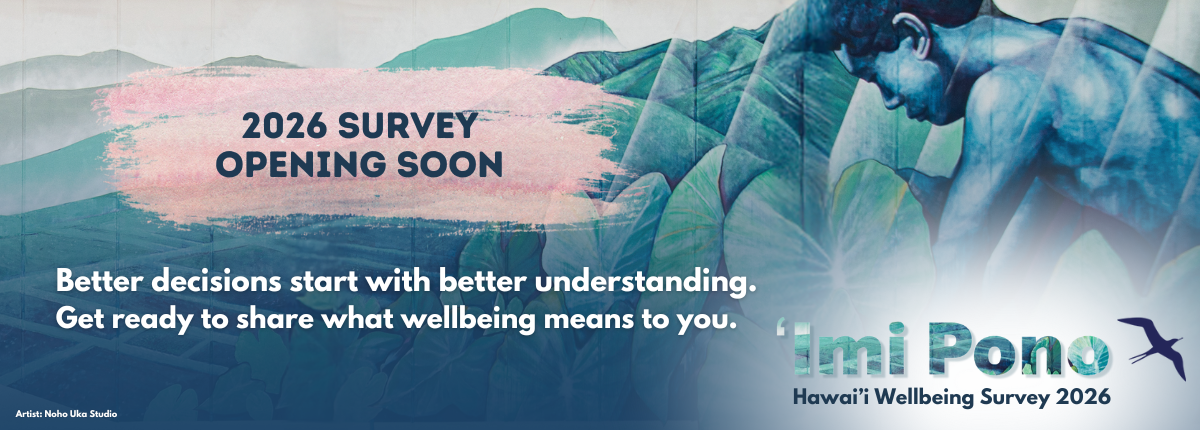
✨ Opening soon! The 2026 ʻImi Pono Hawaiʻi Wellbeing Survey will invite Hawaiʻi residents and Native Hawaiians on the continent (ages 18+) to share their perspectives on wellbeing. The survey takes approximately 20 minutes and will help inform understanding and decisions for the future. Please check back soon to participate.
ʻImi Pono is a multi-year study that explores Native Hawaiian perspectives of wellbeing among Hawaiʻi residents. Rooted in ʻŌiwi values, these perspectives emphasize relationships, interconnection, and balance as essential to a thriving life. Wellbeing is both the source and reflection of many streams — connection to ʻāina, ʻohana, culture, health, and purpose.
Referring to the search for wholeness and balance, ʻImi Pono offers a more complete picture of what wellbeing means in Hawaiʻi. We take a holistic, strengths-based approach to gathering and sharing data — helping to guide organizational planning and strengthen services for Native Hawaiians and all those who live in Hawaiʻi.
Explore
the Data
Dashboard
Dive into survey results from 2021, 2022, 2023, 2024, and 2025 and explore what wellbeing looks like across Hawai'i's communities.
See the Findings
From infographics to video stories, weʻve created accessible resources to share what weʻve learned.

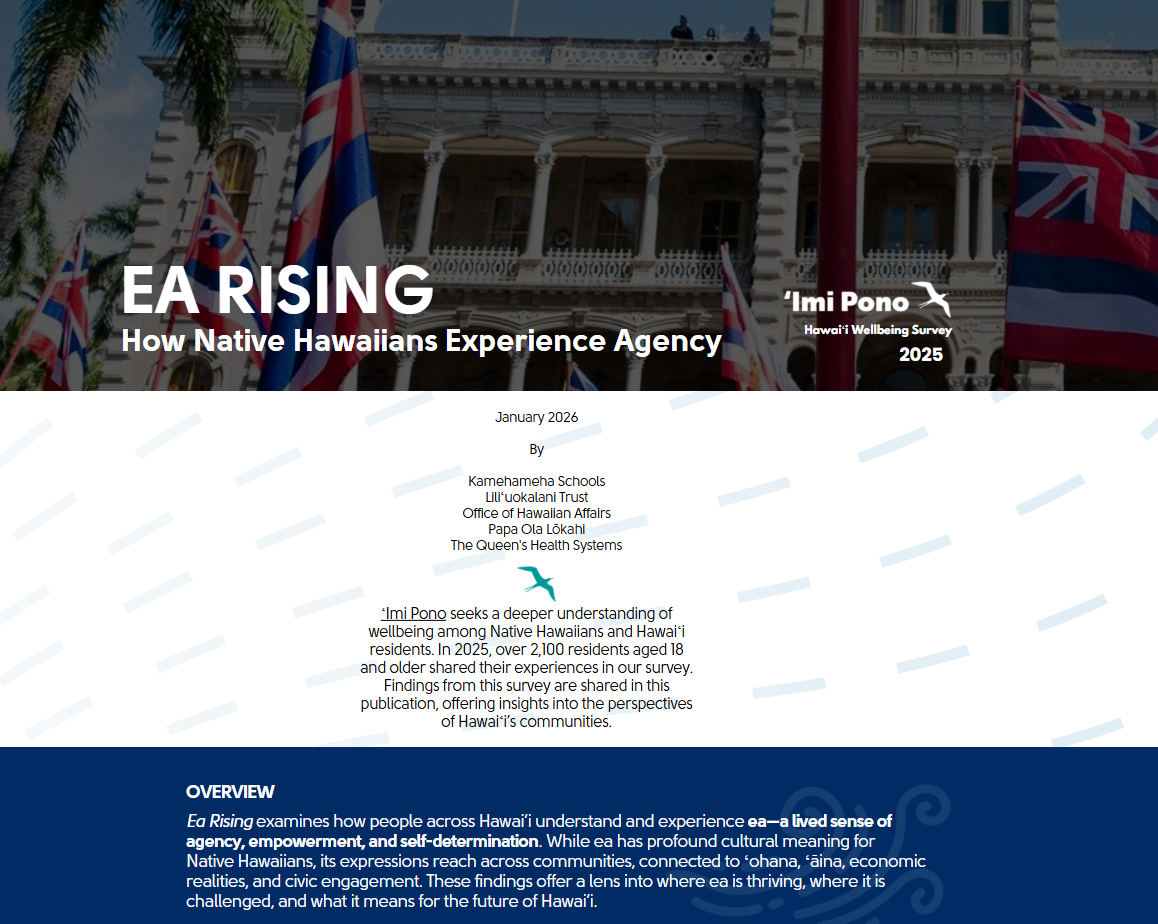 |
This digital brief highlights how ea—the breath of life, self-determination, and cultural resurgence—shapes Native Hawaiian wellbeing, identity, and connection across Hawaiʻi.
|
 |
This digital brief highlights the role of Ke Akua Mana—a sense of spiritual power and sacred connection—in grounding wellbeing and connection across Hawaiʻi.
|
 |
This digital brief explores how Hawaiʻi residents experience K–12 education, highlighting strengths, challenges, and opportunities to support student success statewide.
|
 |
This digital brief explores the housing challenges faced by Hawaiʻi residents, highlighting affordability concerns, homeownership disparities, and the impact of housing stress on wellbeing.
|
 |
ʻO kēia kiʻi ʻikepili e kilo ana i ka ʻōlelo ʻana, ka pinepine, a me ka mākaukau i ka ʻŌlelo Hawaiʻi ma waena o nā kānaka noho Hawaiʻi, a hāʻawi pū i nā manaʻo e kākoʻo i ka hoʻomau ʻana o ka ʻŌlelo Hawaiʻi.
This digital brief examines the use, frequency, and proficiency of ʻŌlelo Hawaiʻi among Hawaiʻi residents, and provides recommendations to promote the continued proliferation of ʻŌlelo Hawai’i.
|
 |
This digital brief explores the reasons behind outmigration, revealing how financial strain, housing affordability, and other challenges are related to decisions to move.
|
 |
This digital brief explores how Native Hawaiians are leading through civic engagement, advocacy, and community leadership.
|
This brief examines sources of housing stress and relief among Hawai‘i residents.
This infographic explores residentsʻ beliefs regarding food security and food behaviors such as where they obtain food and considerations in choosing what to eat.
This infographic explores residentsʻ voting habits, trust in government, engagement in civic activities, and demonstrated leadership within their community.
This brief examines health outcomes among Hawai‘i residents from a Native Hawaiian perspective, which emphasizes spiritual, interpersonal, and land-based connections.
This infographic examines the use, frequency, and proficiency of ‘Ōlelo Hawai‘i among Hawai‘i residents, and provides recommendations to promote the continued proliferation of ‘Ōlelo Hawai‘i.
‘Ōlelo Hawai‘i version | English version














